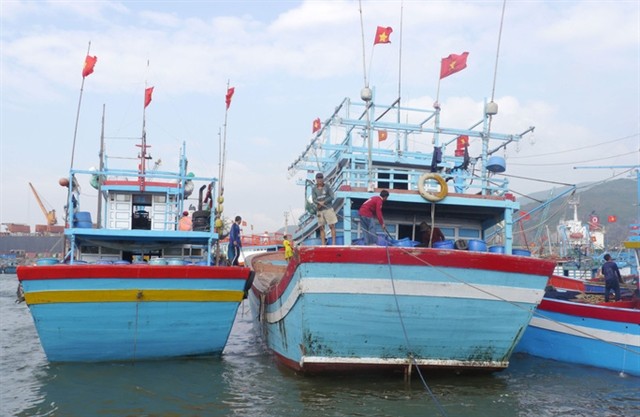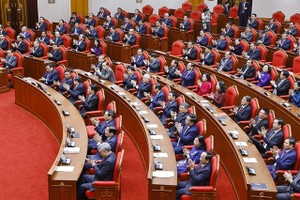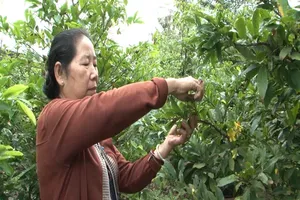
That could help Vietnam’s fishery sector remove the yellow card this year after the EC's third inspection in mid-2020, he said.
The Ministry of Agriculture and Rural Development (MARD) reported an inspection delegation of the European Commission’s Directorate-General for Maritime Affairs and Fisheries (DG-Mare) is scheduled to visit Vietnam from May 25 to June 5 to inspect implementation of the EC recommendations fighting IUU fishing.
If the EC inspection team continues to find illegal fishing in the third inspection this year, Vietnam will not be able to remove the yellow card and may even receive a "red card" (banning imports), according to MARD.
The fight against IUU fishing is an important factor for the EC's decision of removing the yellow card or not, the MARD reported.
Therefore, Minister Cuong has requested the 28 coastal provinces to promote the fight against IUU fishing and effectively implement the Fisheries Law. The provinces must strictly control fishing vessels entering and leaving ports, product origin traceability, as well as fishing diaries and reports.
Nguyen Quang Hung, deputy director of MARD's General Department of Fisheries, said as of January this year, Vietnam had 13,150 ships with cruise monitoring equipment installed, including 2,372 ships with a length of over 24m and 10,778 ships with a length of 15m-24m. That means 92 percent of the total of over-24m-long ships have cruise monitoring equipment while only 37 percent of ships with a length of 15m-24m have this equipment.
Cuong said after two inspections in June 2018 and November 2019, the EC’s inspection team recognised Vietnam’s co-operation, transparency and honesty in providing and exchanging information during their time in Vietnam .
The country’s significant improvements in the monitoring, control and surveillance of fishing vessels have been noted and the management process and organisation of fishing vessels through ports are carried out flexibly and effectively.
Vietnam has also made great efforts to install fishing vessel monitoring systems, disseminate regulations to vessel owners and implement gear marking fishing vessels based on the EC’s recommendations.
The EC’s inspection team also acknowledged Vietnam’s efforts in increasing the management of fishing density through freezing offshore fishing fleets. Vietnam has completed a legal framework for fishing activities, including the Fisheries Law.
The sector has remained weak in managing foreign vessels visiting local ports to import fishery products. The traceability has not yet met the EC's requirements.
According to MARD, due to the EU yellow card for Vietnam’s seafood products, Vietnam’s exports to the EU fell by 6.5 percent to US$390 million in 2018 and by 11.5 percent to $345.2 million in 2019.
From being the second largest import market for Vietnam’s seafood, after the yellow card, the EU has dropped to fifth, and its imports have decreased from 18 percent to 13 percent of Vietnam’s exports.
























